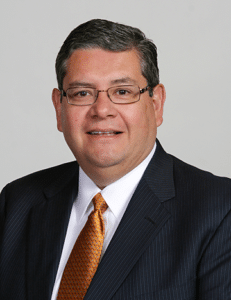Reflections from growing up in rural Arizona
By Dr. Richard Daniel

As I reflect back on my childhood experiences growing up in Superior, I think about the people who helped shape my interest in education. My earliest recollection of thinking about college came in third grade, when my teacher asked me, “What do you want to be when you grow up?” I said that I wanted to become a doctor, an engineer or a lawyer.
My interest in these professions was not the product of popular culture. Rather, it was rooted in my everyday experience growing up in a small mining town, where I came know the doctors at our local hospital (which was owned and operated by the mining company). I also had the good fortune to get to know some of the executives from the mine because of our shared affinity for tennis. As a junior high and high school student, I played tennis with the doctors and senior level engineers of the company. These relationships inspired me to explore what the field of medicine and engineering would require from an educational perspective. My interest in law was prompted by my fascination with our local attorney who had an office downtown, a big house and the reverence of the town (many people relied on his services).
In the fifth grade, my teacher encouraged me to run for Student Body President. Although, I did not win the election, I became the fifth grade representative on the Student Council. Throughout junior high and high school, I was elected to Student Council positions that enabled me to attend student conferences and summer leadership camps at various colleges and universities, thereby broadening my exposure to higher education.
As my interest in going to college increased, however, I realized that I didn’t know how I was going to get there or even pay for it. When I entered high school, my school counselor stressed to me the importance of maintaining good grades and staying at the top of my class, both to be a competitive applicant and to be eligible for scholarships. What we discussed in that initial meeting stuck with me, and I worked hard to ensure that I could earn scholarships to Arizona State University, which, in the end, I was fortunate enough to receive.
I was also awarded a Pell Grant, without which I would not have been able to attend ASU. Today, the Pell Grant is just as important as it was then in providing access to college. Without the support a Pell Grant provides, many students in Arizona and across the country would be unable to afford a college education.
At the time, I did not recognize that I was being groomed in a robust college-going culture, although I valued each of the opportunities that culture provided because they helped to shape my interest in higher education. As I continued throughout high school, the support that I received from my teachers, coaches, counselors and administrators was supremely valuable in enabling me to attend college. I cannot emphasize enough the role that these individuals played throughout my educational experience.
Their support and care, and true desire to make a difference in my life, have stayed with me. In fact, they are no small reason why the work that I have done in the last 29 years in higher education has been focused in providing access and opportunities so that students can have life-transforming experiences similar to those from which I benefited.
Dr. Richard Daniel is the Executive Vice President and COO of College Success Arizona where he directs the organization’s research and policy activities.
